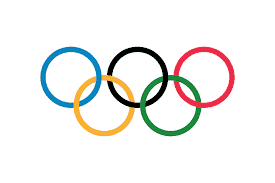Protests banned in Tokyo 2020 Olympics for “harmony” –— but whose?

IOC puts ethics in question
The International Olympic Committee (IOC) Athletes’ Commission introduced a new rule to the Olympic Charter, the document that outlines the principles and rules of the Olympic Games, in September 2019. This “Rule 50,” which promotes “political neutrality” of the Olympic games, effectively prohibits any athlete or other Olympic figure from engaging in demonstration or protest during Olympic events.
In the Rule 50 guidelines, the IOC outlines their definition of “protests” or “demonstrations,” which they say are distinct from “expressions of opinion.” A demonstration or protest, they say, can mean any display of political views through armbands or signage, any political gesture such as a bent knee or raised fist, as well as any refusal to comply with the Olympic protocol at medal ceremonies. Neutrality is a theme in the guidelines, and the IOC says “it is important, on both a personal and a global level, that we keep the venues, the Olympic Village and the podium neutral and free from any form of political, religious or ethnic demonstrations.”
The IOC adds that if there is no “political neutrality” in the Olympics, “the life’s work of the athletes around us could be tarnished,” and that “[w]hen an individual makes their grievances, however legitimate, more important than the feelings of their competitors . . .the unity and harmony . . . of sport and human accomplishment are diminished.” In short, it seems that the IOC Athletes’ Commission feels that “political, religious or ethnic demonstrations” detract from the “true, neutral” spirit of the Olympic Games.
However, these feelings do not reflect those of all athletes; many have spoken out against the statement and its infringement on freedom of expression. Megan Rapinoe, a women’s soccer player who famously knelt during the national anthem in solidarity with Colin Kaepernick, posted this statement on her Instagram: “So much being done about the protests [at sporting events]. So little being done about what we are protesting about. We will not be silenced.”
For Americans, kneeling during the anthem or at a medal ceremony is strongly associated with protesting the Trump presidency and its racist violence against Black Americans and migrants. The specific references to kneeling and raising fists in Rule 50 do not go unnoticed to these protesters, who have already faced much harassment in the media because of how they have used their platform for social justice.
Nor does Rule 50 go unnoticed for the government or people of South Korea, who months before this IOC statement directly asked the Japanese government to ban the imperialist, colonial “rising sun” flag from being flown at Olympic venues – and were told that it would not be banned. Rule 50 applies to athletes, coaches and trainers during Olympic events, but it does not serve to prevent the far right in Japan from using colonial imagery as they attend the games. Such a display would certainly, as the IOC says, “disrupt” the Olympics for Koreans, who still carry the effects of colonialism.
It should, in fact, be seriously considered whether it makes any sense at all to claim that sport is “fundamentally neutral” or “apolitical,” especially when it comes to the Olympics. We are talking here about an event that is founded on nationalist pride, where nations begin by displaying their flags and national anthems are played at every medal ceremony. In what way is this not “political messaging”? Should we not, if we are actually concerned about a “neutral” event, consider the “political messages” put forward by countries such as Canada which were founded on violence against Indigenous peoples? It is clear that these are not the “political” issues covered by Rule 50, and that there is selectivity in all concerns of “political neutrality” where the comfort of some is placed above the safety or dignity of others.
Miranda Biletski (@MirandaBiletski), a Paralympian from Regina, tweeted about the IOC’s statement and her frustration: “I still believe sport has an insanely valuable place in society. But I’ve also been on the receiving end of profit over safety numerous times. It’s hard to love organizations that don’t care about athlete welfare.” Indeed, truly caring for athletes and their hard work should mean allowing athletes to express injustices that threaten their lives and the lives of those in their communities. Gwen Berry, an American hammer thrower who raised her fist during the Pan Am games, expressed a similar sentiment. She said in an interview with Yahoo Sports that Rule 50 is “a form of control . . . it’s kind of like silencing us at the biggest moment of our lives.”
The Olympics, while they may create a period of international unity and celebration of human achievement, are too easily an instrument of oppression as long as they aid in concealing and turning a blind eye to injustice. The IOC says violations of Rule 50 will be dealt with on a case-by-case basis. As Rapinoe says, protesters “will not be silenced” by the IOC, and no doubt those with strong convictions will still express themselves in Tokyo.









